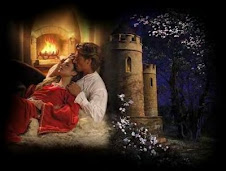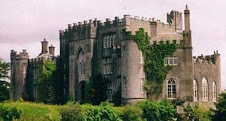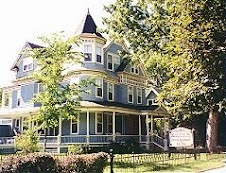Well, actually there are a lot of Irish Gaelic words that have crept into the American English language and some of them you use everyday totally unaware that the words origins are not Anglo-Saxon or foreign words. Take the word slogan for example. It is actually from the Irish sluagh ghairm which means "army cry". Or how about kibosh? Doesn't that sound Jewish? I'm sure I've heard Jewish people use that word, but as a matter of fact it's from the Irish word cie bais (lit. cap of death) and is pronounced kye-bosh, and is our word for clobbering someone. Usually it is phrased, "put the kibosh on" (someone) and this was first used in print by- of all people- Charles Dickens in "Sketches of Boz".
The word dun is used by us primarily to say that the color of something is rather dull. It is from the very old Irish word donn which means dark and they used it to describe the coats of certain horses. If someone blathers on here they also rather blather in Ireland, too! (ha ha!) That word came from the Irish Gaelic as well, which is blether. An Irish reel would be rightly spelled righil and being dour would most likely be du`r , however they borrowed that from Latin!
Hooligan as a word is rather strange isn't it? Even for most cultures it would be because it morphed from an Irish name! Originally the Gaelic name was O hUallachain then it became anglicized to Houlihan. It became Hooligan during the 1890s because of a pub song made about the rowdy Hooligan family which terrorized London at the time. Today any hoodlum or young thug is a hooligan.
Well, I think I've about worn this out! I'll share a few more of these with you next year. In the mean time, just for the record, keester isn't Irish. It also is not English. Most likely it came from the German word kies which refers to flinty ground or gravel. I'll let you draw your own conclusions on that one!
Love and kisses from
The Castle Lady
One man's way may be as good as another, but we all like our own best.
- Jane Austin











































1 comment:
Since only dye is added to regular beer now to make green beer it's more or less unlikely to give you as much of a "kick" as one Guinness alone might!
Word to the wise.
Post a Comment